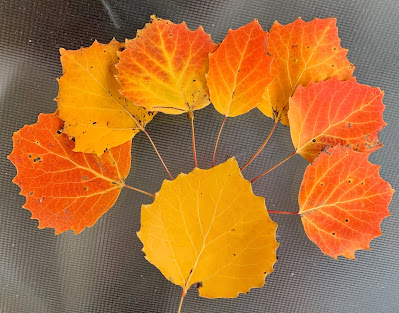October 18.
Up river to Bittern Cliff.
October 18, 2020
(avesong)
A mild still but cloudy or rather misty afternoon,
The water is at present perfectly smooth and calm but covered with a kind of smoky or hazy film.
Nevertheless the reflections of distant woods though less distinct are softer seen through this smoky and darkened atmosphere.
I speak only of the reflections as seen in the broader bays and longer reaches of the river as at the Willow End.
The general impression made by the river landscape now is that of bareness and bleakness the black willow not yet the golden and the button bush having lost almost all their leaves the latter perhaps all and the last is covered with the fuzzy mikania blossoms gone to seed a dirty white.
There are a very few polygonums hydropiperaides and perhaps the unknown rose tinted one but most have withered before the frosts.
The vegetation of the immediate shore and the water is for the most part black and withered.
A few muskrat houses are going up abrupt and precipitous on one side sloped on the other I distinguish the dark moist layer of weeds deposited last night on what had dried in the sun,
The tall bulrush and the wool grass are dry and yellow except a few in deep water but the rainbow rush Juncus militaris is still green.
The autumnal tints though less brilliant and striking are perhaps quite as agreeable now that the frosts have somewhat dulled and softened them.
Now that the forest is universally imbrowned they make a more harmonious impression.
Wooded hillsides reflected in the water are particularly agreeable.
The undulation which the boat creates gives them the appearance of being terraced.
Chickadees and jays are heard from the shore as in winter.
Saw two or three ducks which fly up before and alight far behind.
H. D. Thoreau, Journal, October 18, 1852



No comments:
Post a Comment